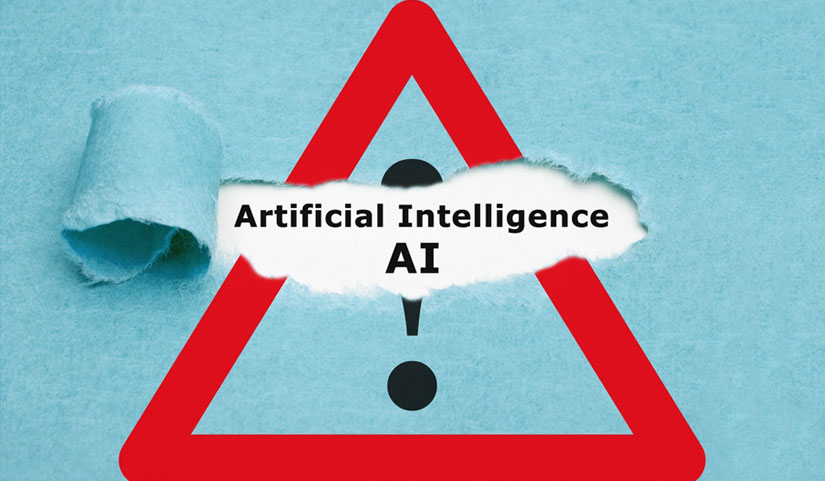AI Therapy: Balancing Benefits And The Risks Of Surveillance

Table of Contents
The Benefits of AI Therapy
AI therapy holds immense promise in revolutionizing access to and the quality of mental healthcare. Its advantages are multifaceted and far-reaching.
Accessibility and Affordability
AI-powered therapy apps are breaking down barriers to mental healthcare access for underserved populations. The lower costs associated with AI-driven interventions, compared to traditional therapy, make it a more affordable option. Geographic limitations are also mitigated, as users can access support from anywhere with an internet connection.
- Examples: Platforms like Woebot and Youper offer AI-driven chatbot therapy, providing readily available support. These apps offer Cognitive Behavioral Therapy (CBT) techniques and other evidence-based approaches.
- Increased Reach: AI therapy has the potential to significantly expand the reach of mental healthcare services, particularly in rural areas or regions with limited access to mental health professionals.
- Reduced Stigma: The anonymity and convenience offered by AI-based tools can help reduce the stigma associated with seeking professional help for mental health issues, encouraging more individuals to seek support. This is especially important for those who might feel uncomfortable discussing their mental health in traditional settings. Keywords: Affordable mental healthcare, accessible therapy, remote therapy, AI chatbot therapy, digital mental health.
Personalized and Tailored Treatment
AI algorithms offer the potential to personalize treatment plans based on an individual's unique needs and preferences. By analyzing user data, these algorithms can identify patterns and tailor interventions accordingly.
- Data-Driven Insights: AI can track progress, identify triggers for negative emotions, and adjust treatment strategies in real-time, leading to more effective outcomes.
- Proactive Interventions: The ability to analyze data and predict potential crises allows for proactive interventions, potentially preventing escalation of symptoms or even suicidal ideation.
- Customized Therapy: AI can adapt its approach based on individual responses, ensuring that the treatment remains relevant and effective throughout the therapeutic process. Keywords: Personalized mental healthcare, AI-driven treatment, customized therapy, data-driven mental health.
24/7 Availability and Support
Unlike human therapists who have limited availability, AI therapy tools offer continuous support, providing immediate assistance whenever needed.
- On-Demand Therapy: Users can access support at any time, day or night, addressing immediate emotional needs or crises.
- AI Chatbot Support: AI chatbots can provide immediate emotional support, coping mechanisms, and guidance during challenging moments.
- Consistent Monitoring: AI can consistently monitor user progress and provide early intervention when necessary, potentially mitigating the severity of mental health challenges. Keywords: On-demand therapy, continuous mental health support, AI chatbot support, immediate mental health assistance.
The Risks of Surveillance in AI Therapy
While the benefits are significant, the ethical considerations surrounding AI therapy, particularly concerning data privacy and surveillance, cannot be ignored.
Data Privacy and Security Concerns
The collection and storage of sensitive personal information in AI therapy raise significant data privacy and security concerns.
- Data Breaches: The risk of data breaches and unauthorized access to sensitive mental health data is a serious concern. Robust security measures are essential to protect user information.
- Data Encryption and Security Protocols: Strong encryption and security protocols are crucial to safeguarding sensitive data from unauthorized access and cyberattacks.
- Transparent Data Usage Policies: Users must be fully informed about how their data is being used and have clear control over their data. Transparent data usage policies and user consent are paramount. Keywords: Data security in AI therapy, mental health data privacy, user data protection, AI therapy regulations.
Algorithmic Bias and Discrimination
AI algorithms are trained on data, and if that data reflects existing societal biases, the algorithms can perpetuate and even amplify those biases.
- Unfair Outcomes: Biased algorithms can lead to unfair or discriminatory outcomes in treatment, potentially exacerbating existing health disparities.
- Diverse Datasets: Using diverse and representative datasets in the training of AI algorithms is critical to mitigate algorithmic bias and ensure equitable access to mental healthcare.
- Societal Inequalities: Failure to address algorithmic bias can perpetuate existing societal inequalities in access to and quality of mental healthcare. Keywords: Algorithmic bias in mental health, AI ethics, fairness in AI therapy, equitable access to mental healthcare.
Lack of Human Interaction and Empathy
While AI can provide valuable support, it cannot fully replicate the human connection and empathy crucial in therapeutic relationships.
- Limitations of AI: AI lacks the nuanced understanding of human emotions and the ability to provide truly empathetic support.
- Human Oversight: Human oversight and intervention are essential to ensure that AI therapy is used responsibly and effectively.
- Human-Led Care: A balanced approach that combines AI assistance with human-led care is vital to ensure the best possible outcomes. Keywords: Human-AI collaboration in therapy, limitations of AI therapy, the role of human therapists, empathetic care.
Conclusion: Navigating the Future of AI Therapy Responsibly
AI therapy offers significant potential to improve access to and the quality of mental healthcare, particularly through increased accessibility, personalized treatment, and 24/7 availability. However, serious ethical considerations surrounding data privacy, algorithmic bias, and the limitations of AI in replicating human empathy must be addressed. The future of AI in therapy hinges on responsible development and implementation, prioritizing data security, mitigating algorithmic bias, and ensuring a balance between AI assistance and human-led care. We must engage in informed discussions about the ethical implications of AI-powered mental health solutions and advocate for regulations and guidelines that protect user privacy and promote equitable access to high-quality mental healthcare. The responsible development of AI therapy will ultimately determine its success in improving mental health outcomes globally. For further reading on these important topics, please refer to resources from the [link to reputable source 1] and [link to reputable source 2].

Featured Posts
-
 Padres Announce 2025 Regular Season Television And Radio Broadcast Schedule
May 15, 2025
Padres Announce 2025 Regular Season Television And Radio Broadcast Schedule
May 15, 2025 -
 Paddy Pimblett Questions Poiriers Retirement Will He Return To The Octagon
May 15, 2025
Paddy Pimblett Questions Poiriers Retirement Will He Return To The Octagon
May 15, 2025 -
 Florida Welcomes Foot Lockers New Global Headquarters
May 15, 2025
Florida Welcomes Foot Lockers New Global Headquarters
May 15, 2025 -
 Mls Injury Report Roundup Assessing Key Player Absences For Saturday
May 15, 2025
Mls Injury Report Roundup Assessing Key Player Absences For Saturday
May 15, 2025 -
 Top Dodgers Prospects Tracking Kim Hope Miller And Phillips
May 15, 2025
Top Dodgers Prospects Tracking Kim Hope Miller And Phillips
May 15, 2025
